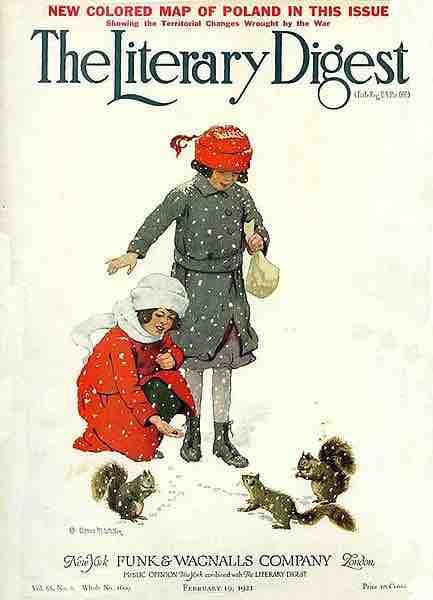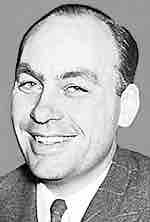The first known example of an opinion poll was a local straw poll conducted by The Harrisburg Pennsylvanian in 1824, showing Andrew Jackson leading John Quincy Adams by 335 votes to 169 in the contest for the United States Presidency. Since Jackson won the popular vote in the full election, such straw votes gradually became more popular, but they remained local, usually city-wide, phenomena.
In 1916, the Literary Digest embarked on a national survey, partly as a circulation-raising exercise, and correctly predicted Woodrow Wilson's election as president . Mailing out millions of postcards and simply counting the returns, the Digest correctly predicted the victories of Warren Harding in 1920, Calvin Coolidge in 1924, Herbert Hoover in 1929, and Franklin Roosevelt in 1932.

The Literary Digest
The Literary Digest conducted the first national poll.
In 1936, its 2.3 million "voters" constituted a huge sample; however, they were generally more affluent Americans who tended to have Republican sympathies. The Literary Digest was ignorant of this new bias. The week before Election Day, it reported that Alf Landon was far more popular than Roosevelt . At the same time, George Gallup conducted a far smaller, but more scientifically based survey, in which he polled a demographically representative sample. Gallup correctly predicted Roosevelt's landslide victory. The Literary Digest soon went out of business, while polling started to take off.

George Gallup
George H. Gallup was the founder of the Gallup Poll.
Elmo Roper was another American pioneer in political forecasting using scientific polls. He predicted the reelection of President Franklin D. Roosevelt three times, in 1936, 1940, and 1944. Louis Harris had been in the field of public opinion since 1947 when he joined the Elmo Roper firm, then later became partner.
Gallup launched a subsidiary in the United Kingdom, where it almost alone correctly predicted Labour's victory in the 1945 general election. This contrasted with virtually all other commentators, who expected a victory for the Conservative Party led by Winston Churchill.
By the 1950s, various types of polling had spread to most democracies.